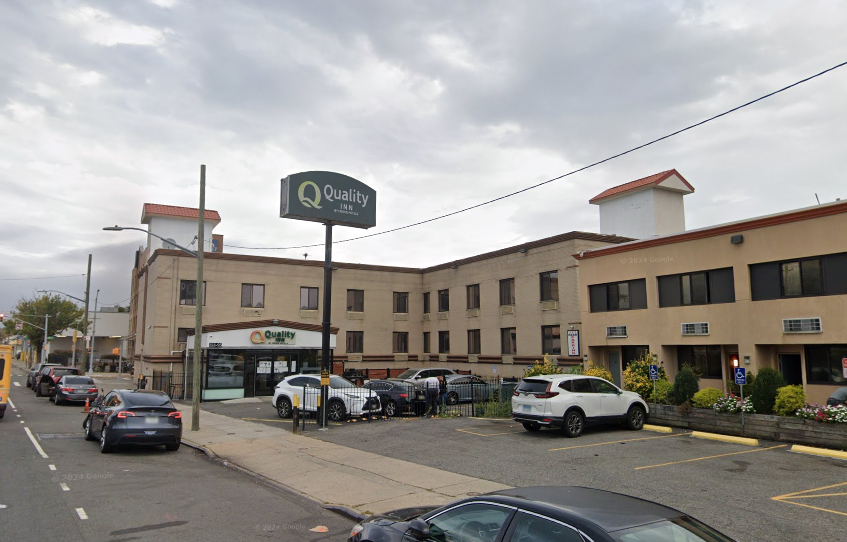BY PATRICK HEDLUND | When Canadian painter Nadia Bertrand first arrived in New York City, she walked into the Chelsea Hotel with grand plans of trading her work for a room at the infamous artists’ enclave.
“I came with my painting, and the guy laughed at me,” she recalled of her visit to the front desk last year. “He was laughing at me and telling me these days are over.”
But Bertrand persisted, eventually finagling a face-to-face with hotel shareholder David Elder to make her pitch. He ended up liking her work, so the acting manager struck a deal to host the artist for 10 days in February for the price of a painting.
“I could accommodate her, and the work was interesting,” Elder said recently from his airy office just off the hotel’s lobby. “It’s along the lines of what we are.”
Unwitting or not, Elder’s gesture marked a revival of the hotel’s legendary art-in-lieu-of-cash plan, a practice originated by former longtime manager Stanley Bard when dealing with the Chelsea’s struggling artist residents.
But Elder, a descendant of the hotel’s original owners, might not appear the most likely candidate to agree to such overtures. Since ousting the beloved Bard in 2007 following a management dispute, he has been locked in a war of sorts with the hotel’s pro-Bard residents. They accuse him of trying to evict long-term tenants as part of plan to convert the Chelsea to an upscale boutique and capitalize on its historic legacy.
In Bertrand’s opinion—she learned of the internal squabbles only recently—Elder is simply carrying on a longstanding tradition at the bohemian landmark, one which drew her to the hotel in the first place.
“I stand for art,” she said when speaking of the tenants-vs.-management saga. “And David Elder stands there, too.”
Bertrand hosted a reception at the hotel on Sun., May 10, to celebrate the presentation of a second painting, which will go on display in one of the hotel’s many art-adorned rooms. Fresh from an exhibition in Soho, the piece represents her final payment for what ultimately turned into a month-long stay at the Chelsea, where room rates run anywhere from $189 to $399 per night.
“It’s very, very, very, very stimulating here,” she said of the hotel’s ubiquitous art. “You see so much good work.” The affable artist, who hails from Montreal and speaks with a thick French-Canadian accent, completed four paintings during her initial visit.
Emboldened by that week-and-a-half sojourn, Bertrand returned to the hotel in March with another offer, explaining to Elder that she didn’t have plans for the painting after its exhibition run. She scored another stay, this time for three weeks, in exchange for the piece.
“We want to operate in that area we’re in,” Elder said, “the history and culture and cachet that we have.” The deals were undoubtedly easier to make considering the hotel’s low occupancy rates, and Elder said that “we’ll take it as it goes in terms of if other people are interested.”
Bertrand said she got a sense of that history and culture from the unique confluence of long-term tenants and tourists, insiders and outsiders.
“You get the vibe of the place,” she said. “It’s like a family, exactly like a family. When I am there, I feel home. I feel like it’s a family—with the good things and the bad things.”
At the party on Sunday, a group of Bertrand’s friends came to fete the artist as much as the circumstances that brought her to the hotel.
“Things like this still happen,” said Merle Lister, who’s lived in the hotel for 27 years. “He (Elder) realizes there’s artistic people, and not to have that—that would be terrible. I think they’re realizing that this is the life of the Chelsea.”





























